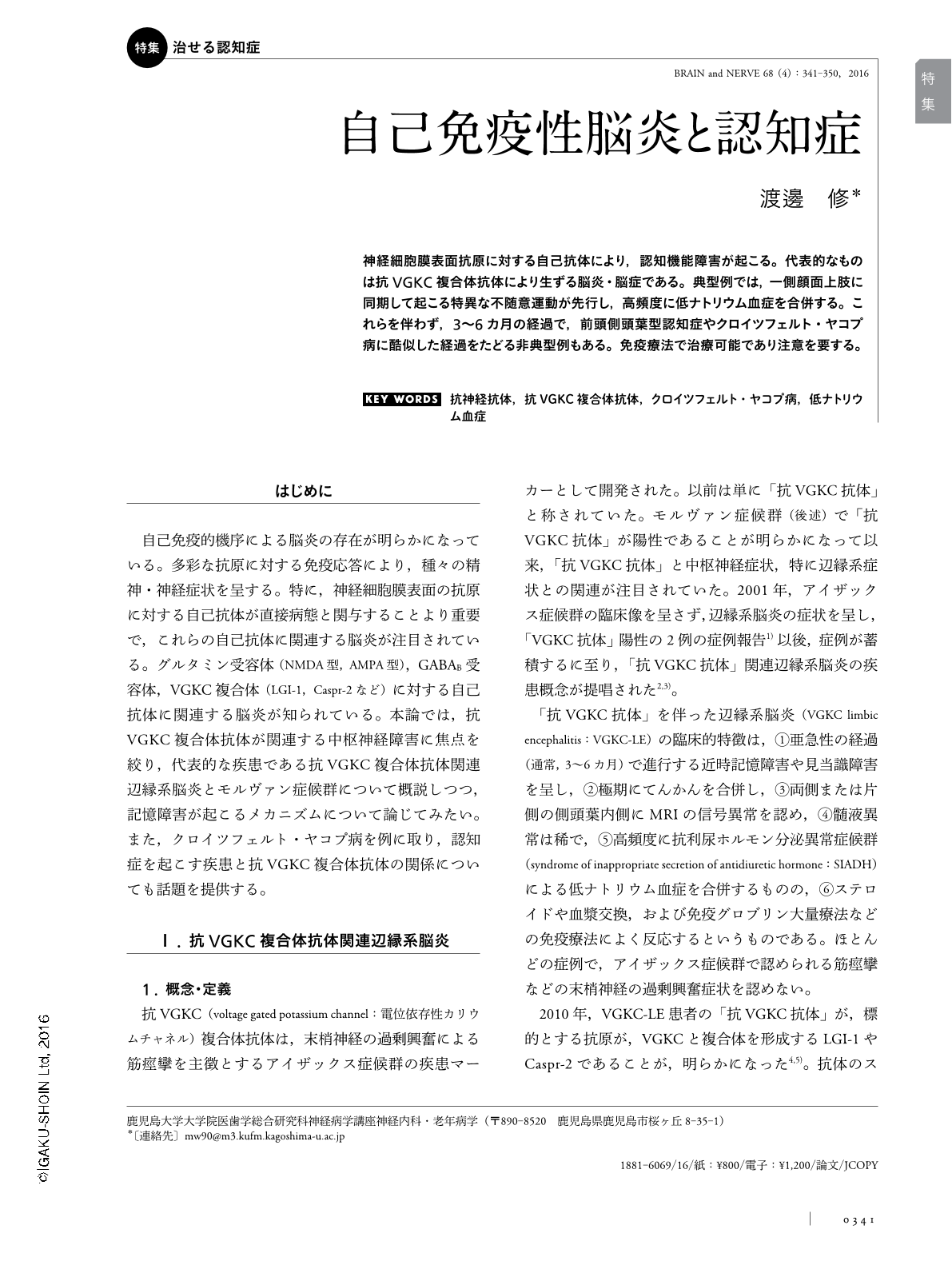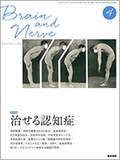Japanese
English
- 有料閲覧
- Abstract 文献概要
- 1ページ目 Look Inside
- 参考文献 Reference
神経細胞膜表面抗原に対する自己抗体により,認知機能障害が起こる。代表的なものは抗VGKC複合体抗体により生ずる脳炎・脳症である。典型例では,一側顔面上肢に同期して起こる特異な不随意運動が先行し,高頻度に低ナトリウム血症を合併する。これらを伴わず,3〜6カ月の経過で,前頭側頭葉型認知症やクロイツフェルト・ヤコプ病に酷似した経過をたどる非典型例もある。免疫療法で治療可能であり注意を要する。
Abstract
Antibodies against various neural surface antigens induce cognitive impairments. Anti-VGKC (voltage gated potassium channel) complex antibodies are well known as one of the causative autoantibodies. An anti-VGKC antibody was identified as the autoantibody in acquired neuromyotonia (Isaacs' syndrome), which causes muscle cramps and difficulty in opening the palm of the hands. However, this antibody also tests positive in autoimmune limbic encephalitis, which has a subacute progress and causes poor memory or epilepsy attacks. Typical cases have a distinctive adult-onset, frequent, brief dystonic seizure semiology that predominantly affects the arms and ipsilateral face. It has now been termed faciobrachial dystonic seizures. In recent years, the true target antigens of the anti-VGKC antibody of this VGKC limbic encephalitis have been recognized as leucine rich glioma inactivated protein (LGI)-1 and others. These antibodies to amnesia-related LGI-1 in limbic encephalitis neutralize the LGI-1−ADAM22 (an anchor protein) interaction and reduce synaptic AMPA receptors. There have been reports of limbic encephalitis associated with anti-VGKC complex antibodies mimicking Creutzfeldt-Jakob disease (CJD). Less than 2% of the patients with sporadic CJD (sCJD) develop serum anti-VGKC complex antibodies and, when positive, only at low titres. Low titres of these antibodies occur only rarely in suspected patients with sCJD, and when present, should be interpreted with caution.

Copyright © 2016, Igaku-Shoin Ltd. All rights reserved.


